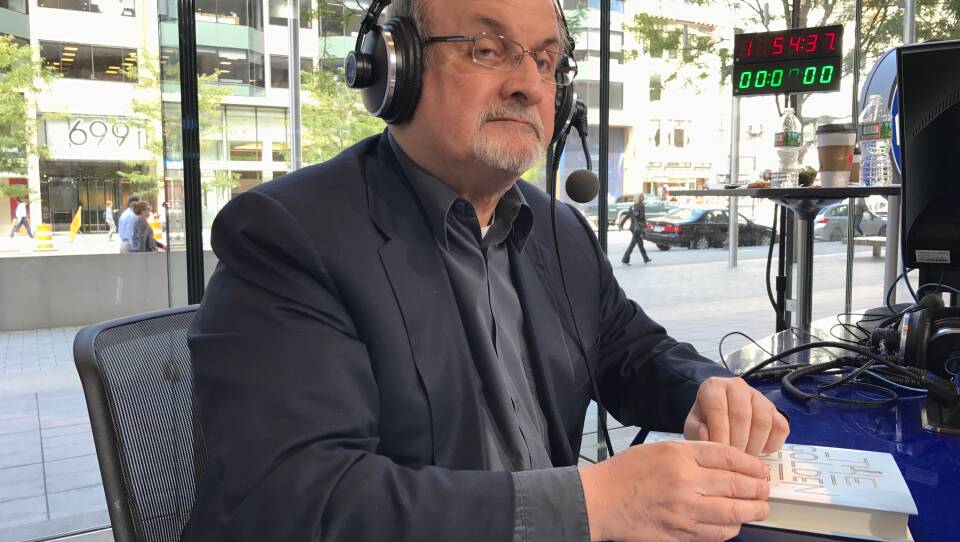What would "Don Quixote" look like in a post-9/11 world, where Donald Trump is president? Salman Rushdie's latest novel, "Quichotte" imagines just that.
The book starts as the TV-addicted title character, aware that he's "maybe a little cracked in the head," realizes he may have fallen victim to a "psychological disorder in which the boundary between truth and lies became smudged and indistinct."
Quichotte is Indian-American, and Rushdie spoke of his own experience being brown in America post-9/11.
"Indian Americans occupy a kind of strange middle ground in the story of racism in America. The big story is between white supremacists and the African-American community," he said. "But in a strange way in this post-9/11 period, anybody with brown skin can be mistaken for Arab, and therefore a kind of terrorist, and so all brown people become a sort of target of racism the way they maybe didn't use to be. ... If i was going to send these people across America, it would be unrealistic for them to not encounter some kind of hostility."
Quichotte is also a perpetual optimist, traveling through a chaotic end-of-days America.
"He's, all through the book, traveling through an America in a condition of some difficulty, but he never loses his hopefulness and optimism, and believes things will work out. Throughout the book that's his point of view. And I think there's a bit of me that's him," he said. "I don't believe that everything is necessarily going to be in a condition of doom and gloom. Things can change, and we can change them."
Rushdie is the author of 18 works. His latest novel is "Quichotte."





